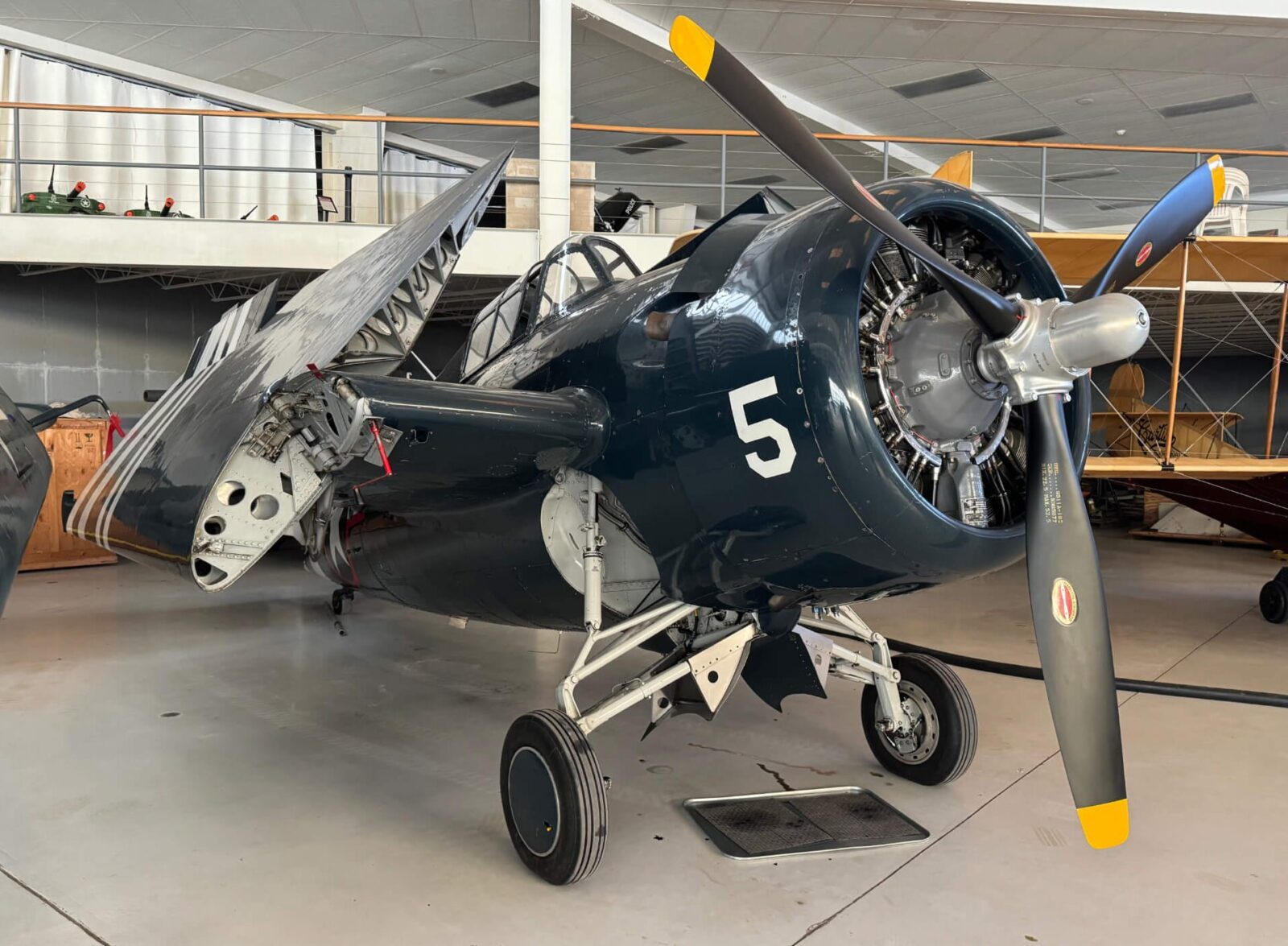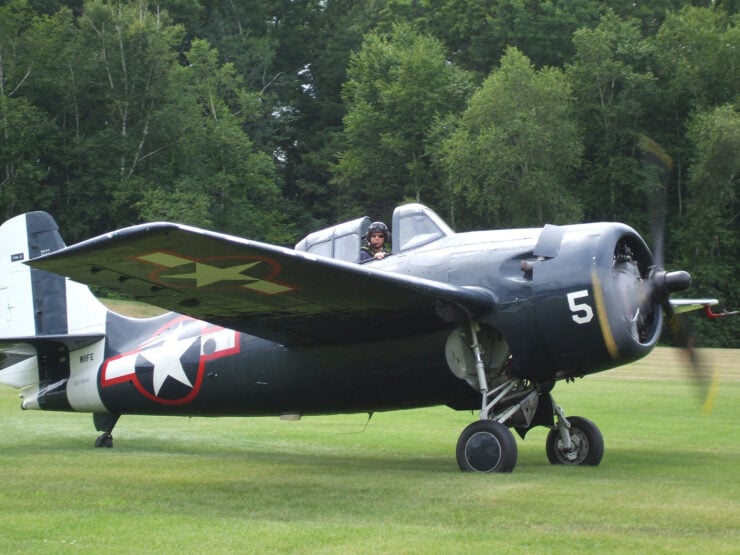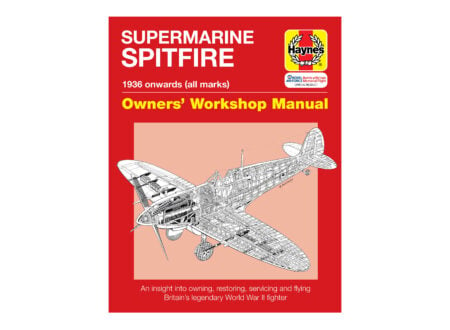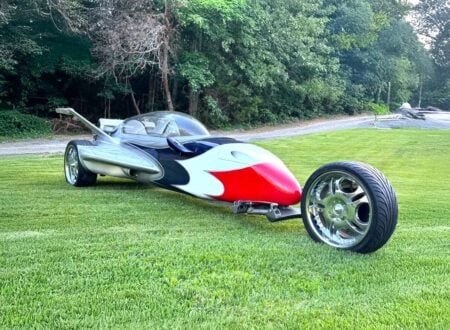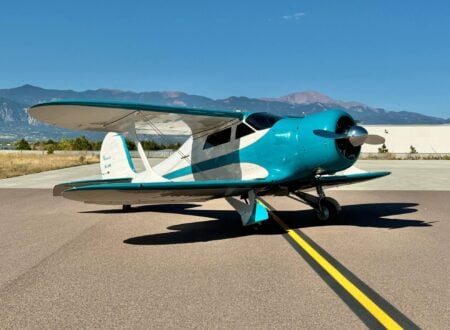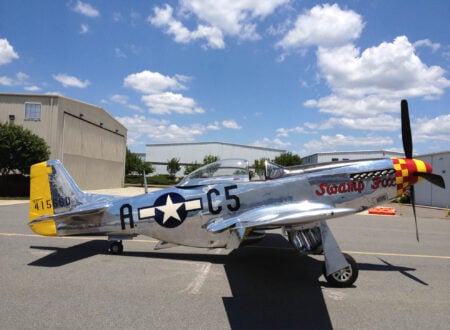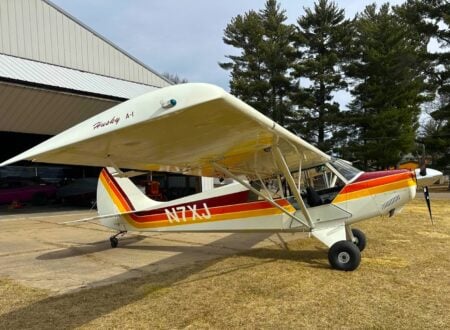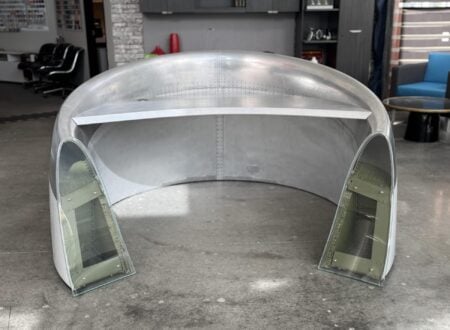The Grumman FM-2 Wildcat was an improved version of the Grumman F4F Wildcat that was built by General Motors during WWII. The Wildcat was a famously tough carrier-based fighter that initially saw action in Europe, though most would be used in the Pacific Theater.
The FM-2 version of the Wildcat had a more powerful engine, a larger vertical stabilizer (rear fin), a lightened airframe, increased ammunition capacity, and it was capable of launching rockets or dropping bombs from the wings. 5,837 examples of the FM-2 would be built in total.
Fast Facts – The Grumman FM-2 Wildcat
- The FM-2 was an improved version of the F4F Wildcat, built by General Motors during WWII. It featured a more powerful engine, a larger stabilizer for better handling, a lighter airframe, and increased ammunition capacity. A total of 5,837 FM-2s were produced.
- The original F4F Wildcat was a rugged U.S. Navy and Marine Corps carrier-based fighter, excelling in the early Pacific War despite being slower than the Japanese Zero. With superior armor and self-sealing fuel tanks, it achieved a 6.9:1 air combat kill-to-loss ratio by the end of the war, and participated in many major Pacific Theater battles.
- The FM-2 was powered by a Wright R-1820-56 radial engine with 1,350 bhp, allowing operations from smaller carriers without a catapult. It had four .50-caliber machine guns, extended ammunition capacity, and could carry two 250 lb bombs or six 5-inch rockets, improving its versatility in combat.
- A fully restored and airworthy 1945 FM-2 Wildcat, maintained with an overhauled Wright Cyclone R-1820-76D engine, is currently for sale in Massachusetts. Priced at $1.5 million USD, it features extensive restoration work, including new engine components, and is listed by Platinum Fighter Sales.
The Grumman F4F Wildcat
The Grumman F4F Wildcat was a carrier-based fighter aircraft that played a crucial role in the early years of World War II, particularly in the Pacific Theater. It was the primary naval fighter for the U.S. Navy and Marine Corps until it was gradually replaced by the F6F Hellcat. It first flew in combat with the British in Europe, where it earned a formidable reputation as a tough carrier based fighter capable of wreaking havoc on the Luftwaffe.
“I would still assess the Wildcat as the outstanding naval fighter of the early years of World War II … I can vouch as a matter of personal experience, this Grumman fighter was one of the finest shipboard aeroplanes ever created.” — Eric “Winkle” Brown, famous WWII British test pilot.
Development of the F4F Wildcat can be traced back to the Grumman XF4F-1 biplane, it was passed over by the U.S. military in favor of the Brewster F2A Buffalo – a monoplane design that was seen as the better option.
The F4F-3 Wildcat was introduced in 1940, with an armament of four .50 caliber M2 Browning machine guns and self-sealing fuel tanks. It was quickly upgraded to the F4F-4, which had six machine guns and folding wings to make it more compact, and improve carrier storage.
The Wildcat was slower and less maneuverable than the Japanese A6M Zero, but it was rugged, well-armed, and had superior armor and self-sealing fuel tanks, making it more survivable in combat. By the end of the war it would have an air combat kill-to-loss ratio of 6.9:1.
The aircraft would play a crucial role in many of the most important battles in the Pacific, including at the battle of the Coral Sea, the battle of Midway, and the Guadalcanal Campaign. Over a dozen variants would be built by the time the war ended in 1945, altogether there were 7,885 Wildcats built.
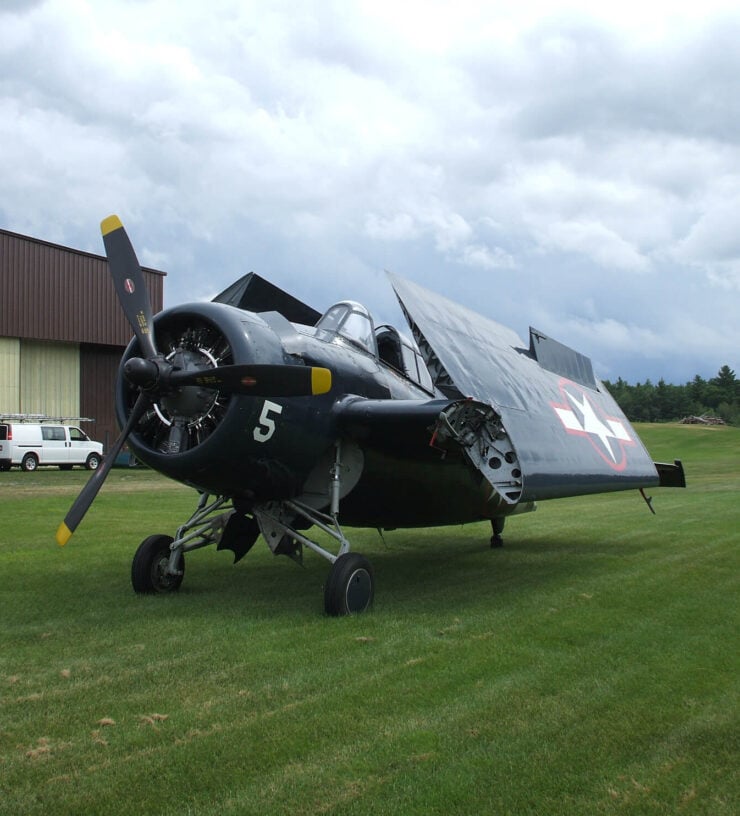

The Grumman FM-2 Wildcat
The Grumman FM-2 Wildcat was the most common variant of the aircraft design, built by General Motors at their Eastern Aircraft Division. The FM-2 featured a number of upgrades including a larger vertical stabilizer (rear fin) which was deemed necessary to improve low speed handling and to better offset the new, more powerful engine.
That engine was a Wright R-1820-56 radial producing 1,350 bhp – this increased power combined with the lightened airframe meant that the FM-2 Wildcat could operate from smaller aircraft carriers reliably, and it didn’t need a catapult to get airborne.
The FM-2 would be equipped with four .50-inch machine guns in the wings, a reduction from six guns, but it allowed the model to carry more ammunition, which was considered more important. The FM-2 could also be equipped with two 250 lb bombs or six 5 inch rockets on the wings.
The Grumman FM-2 Wildcat Shown Here
The aircraft you see here is a 1945 Grumman FM-2 Wildcat from the final year of production. It now benefits from a significant amount of maintenance and restoration work, and it’s 100% airworthy and flying regularly.
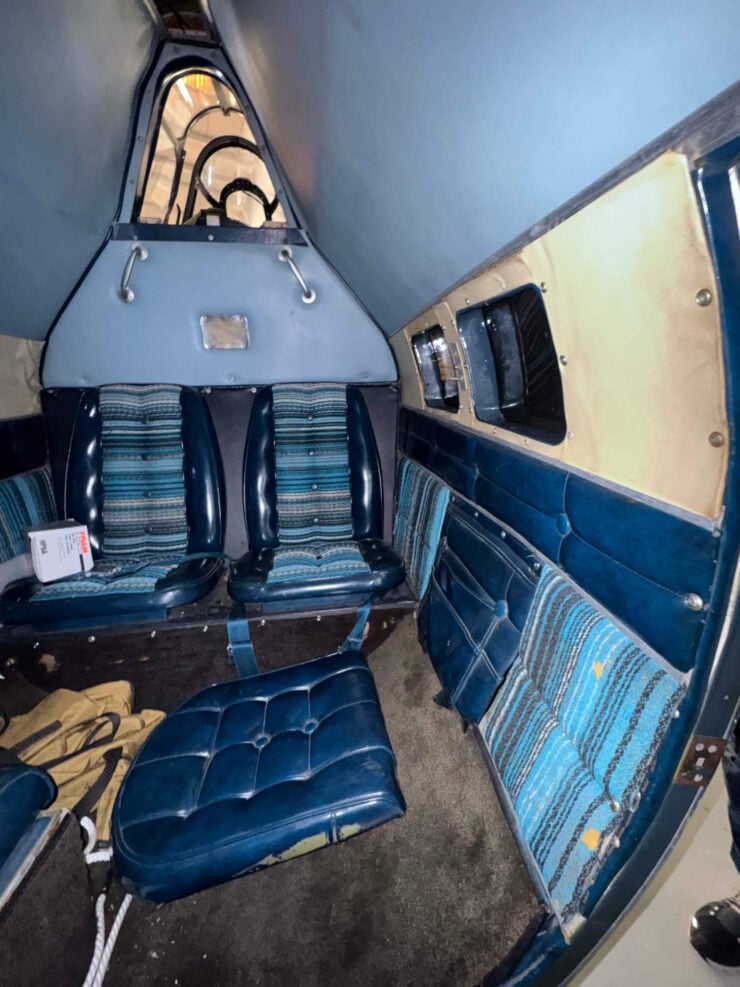

It’s powered by a Wright Cyclone R-1820-76D radial engine that was given an overhaul by Roger Pickett of Air Motive which saw the installation of many new parts, including a heavy-duty crankshaft, new cylinders and bearings, new pistons and rings, and more. All of which was documented in detail.
The aircraft is now located in Massachusetts in the United States and it’s being offered for sale by Platinum Fighter Sales for $1.5 million USD. If you’d like to read more about it or register to bid you can visit the listing here.
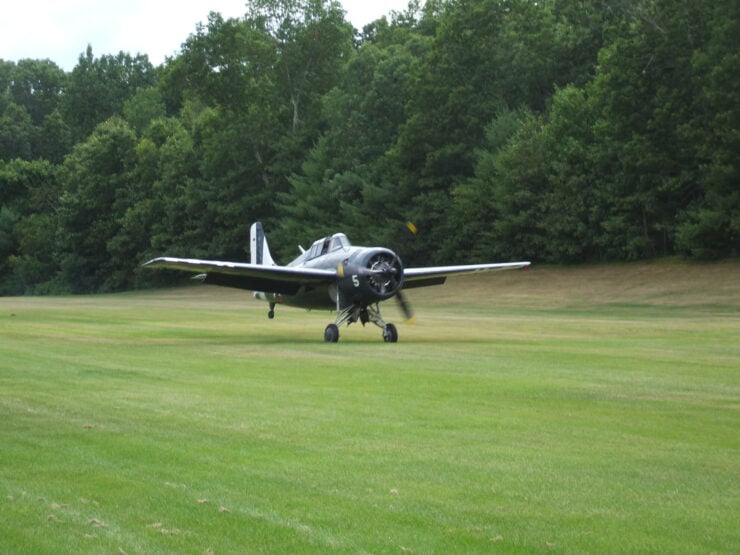
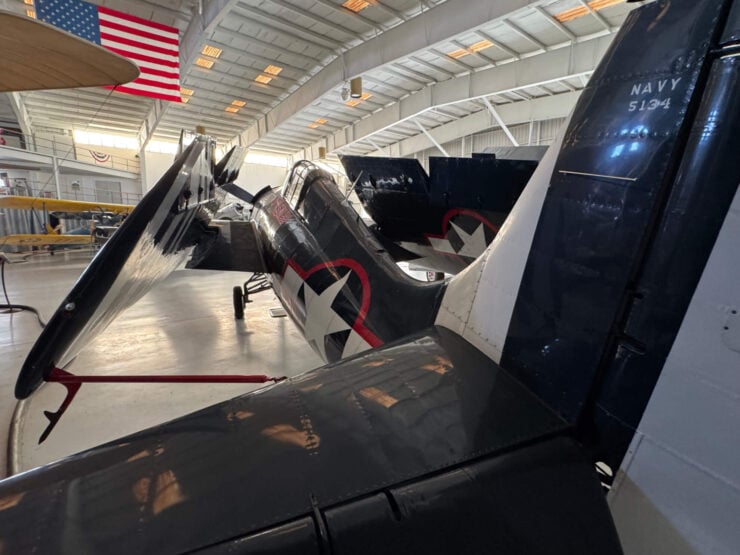
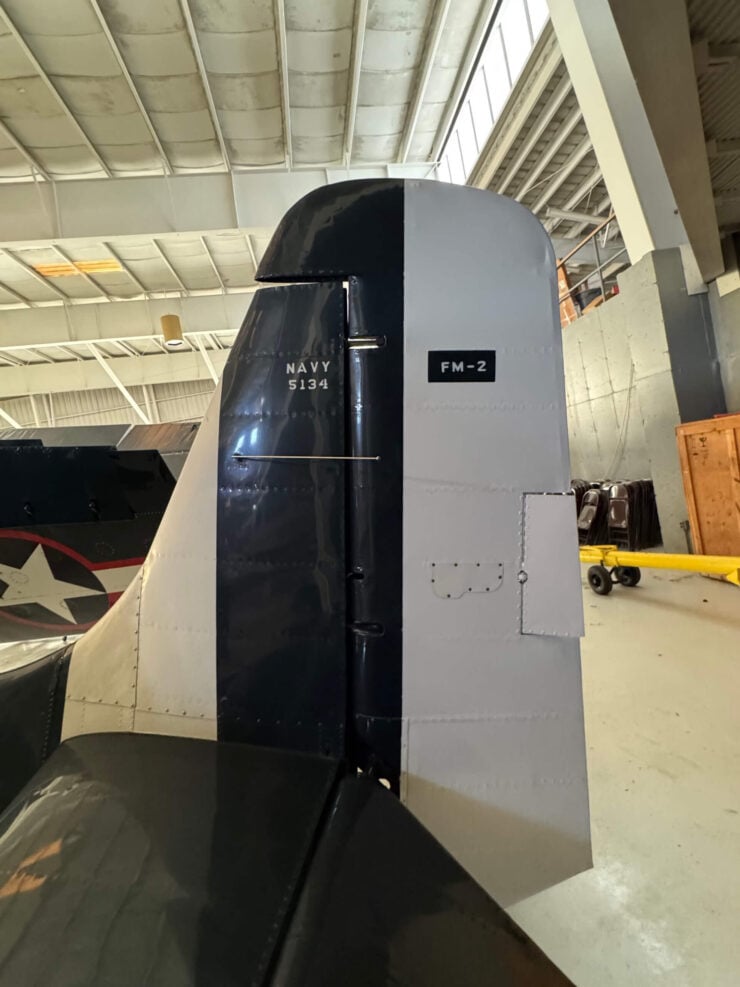
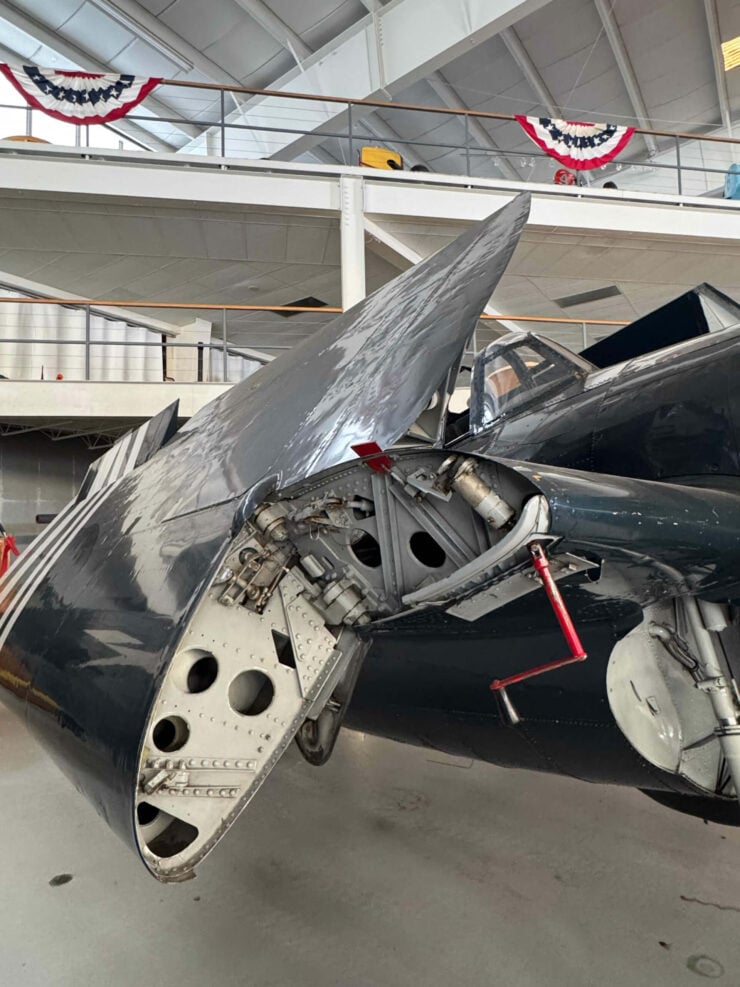
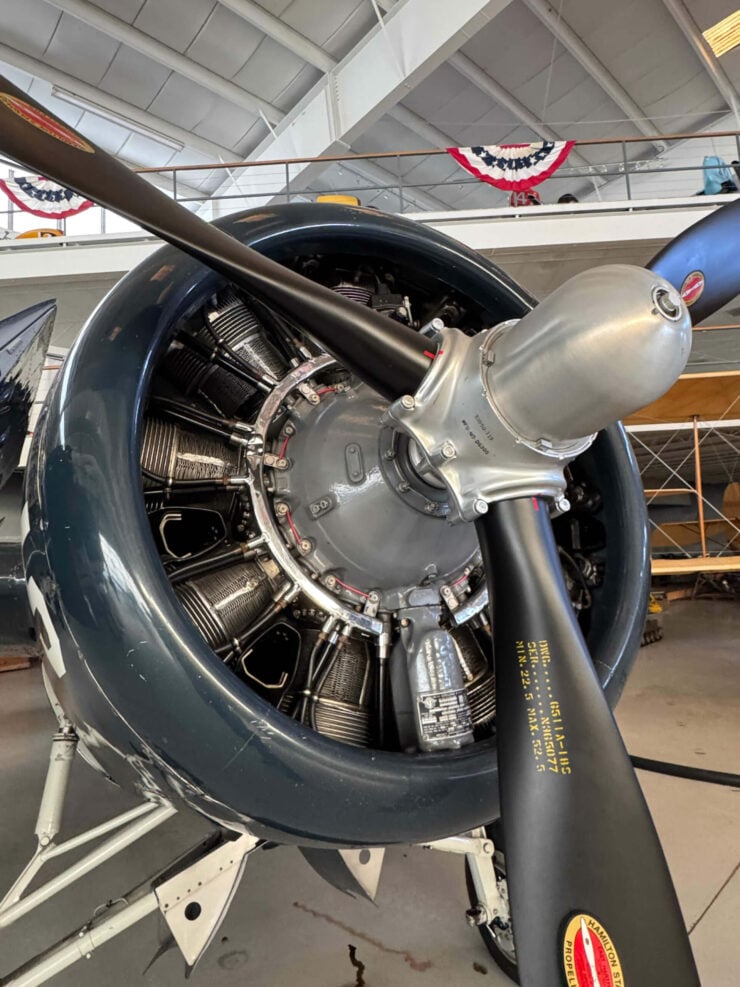
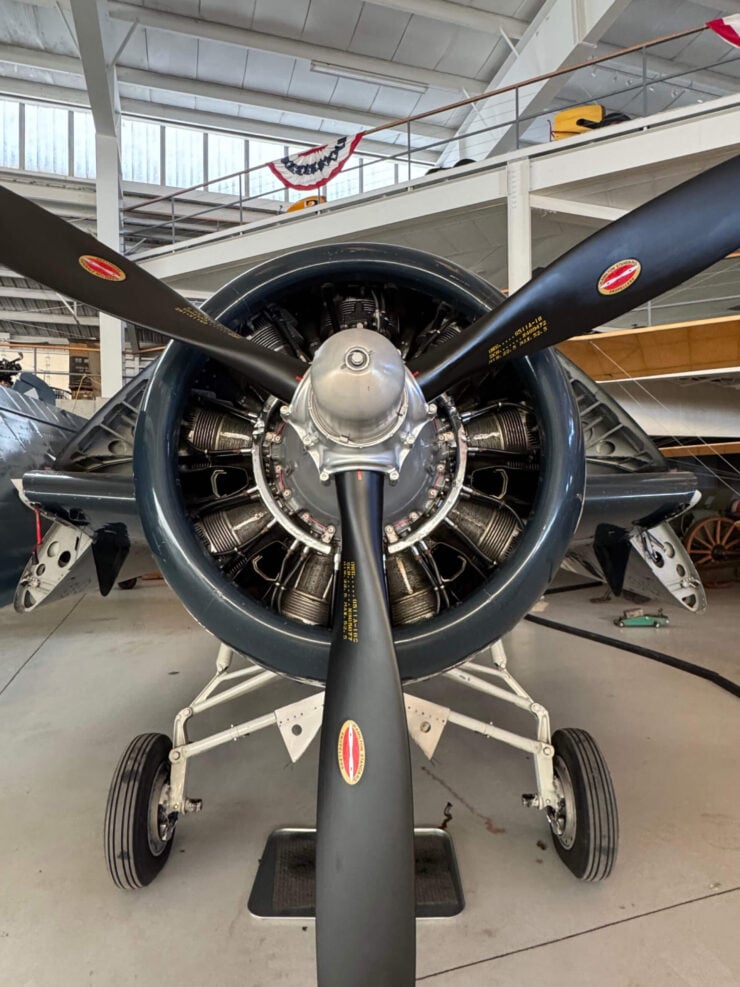
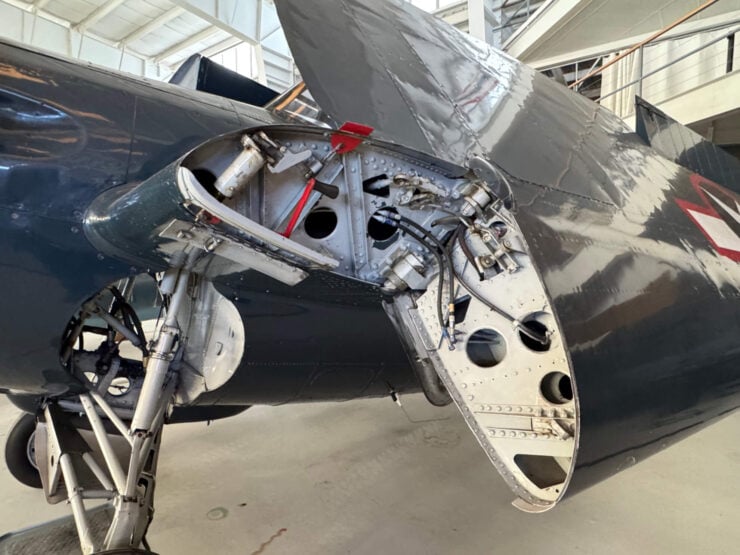
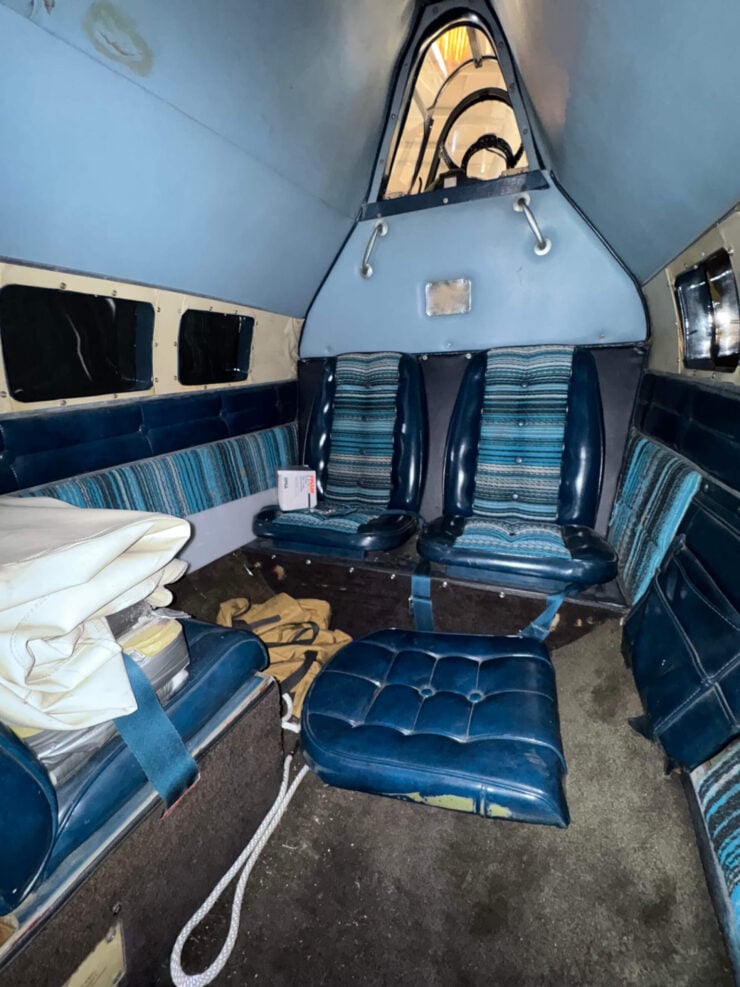
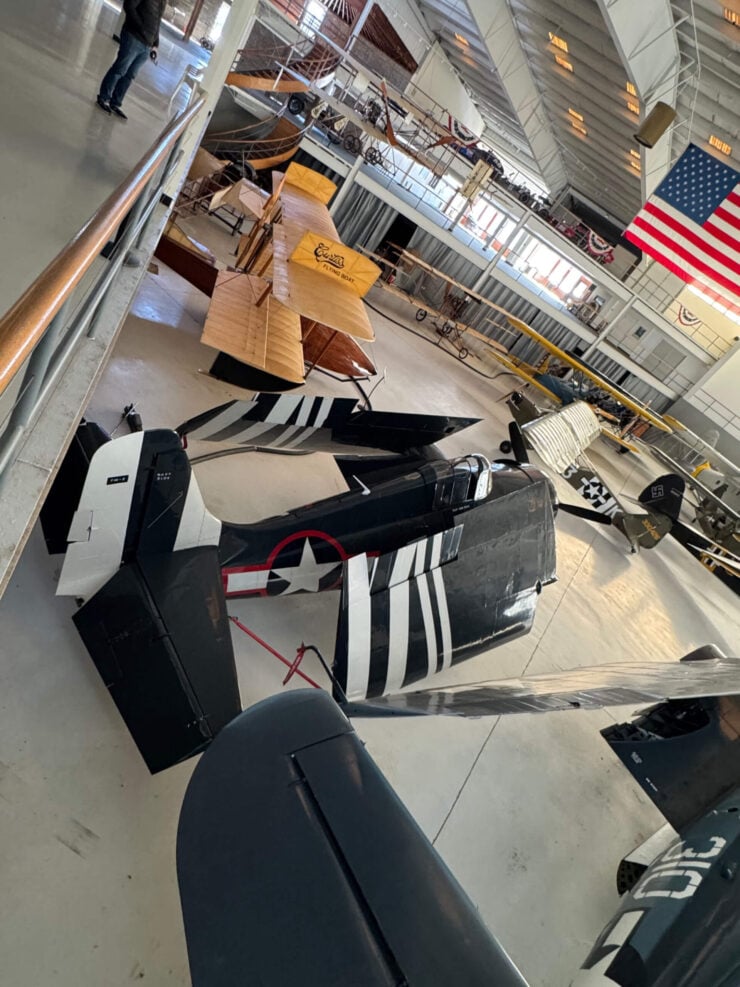
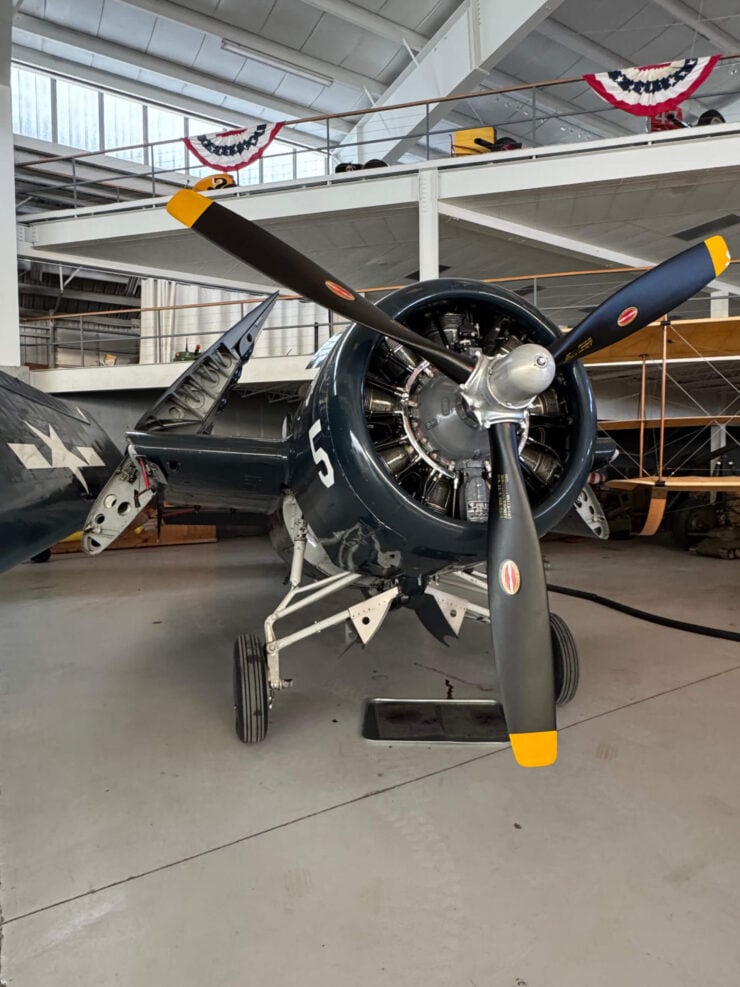
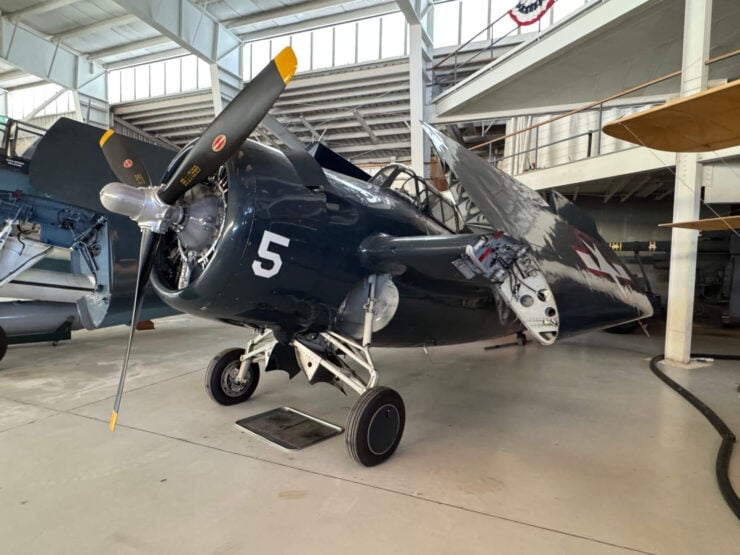
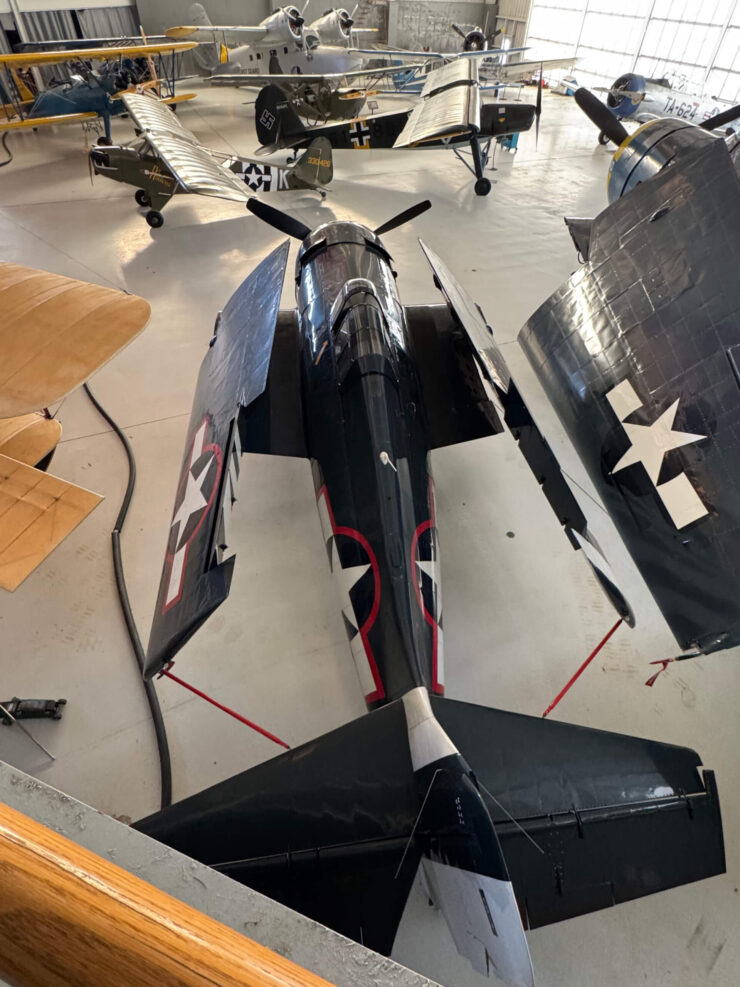
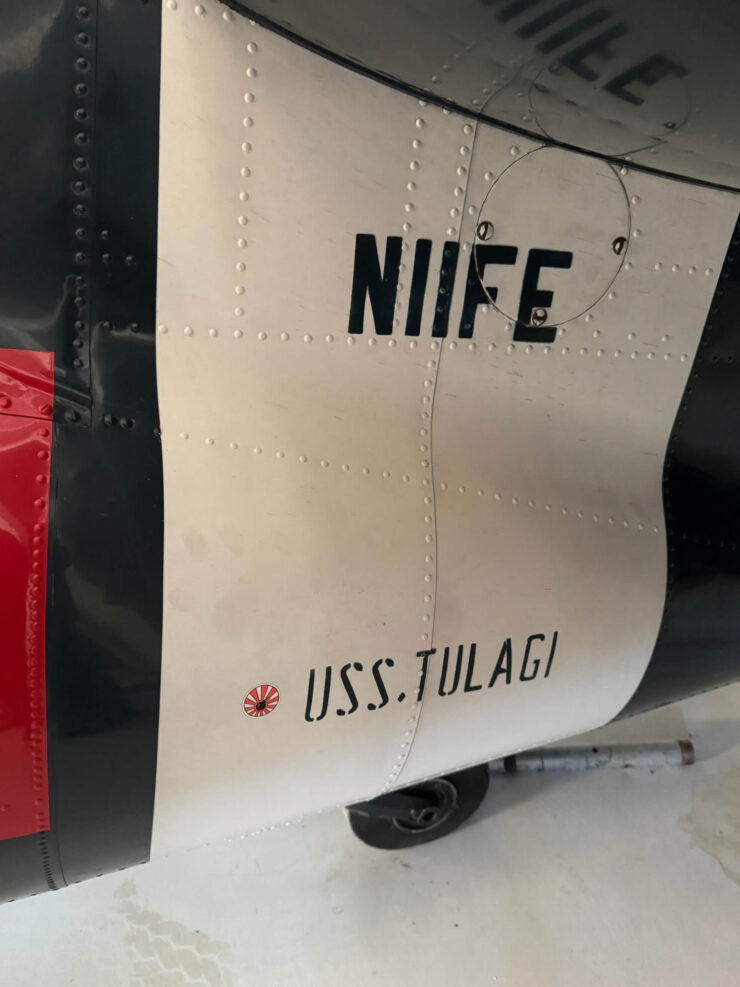
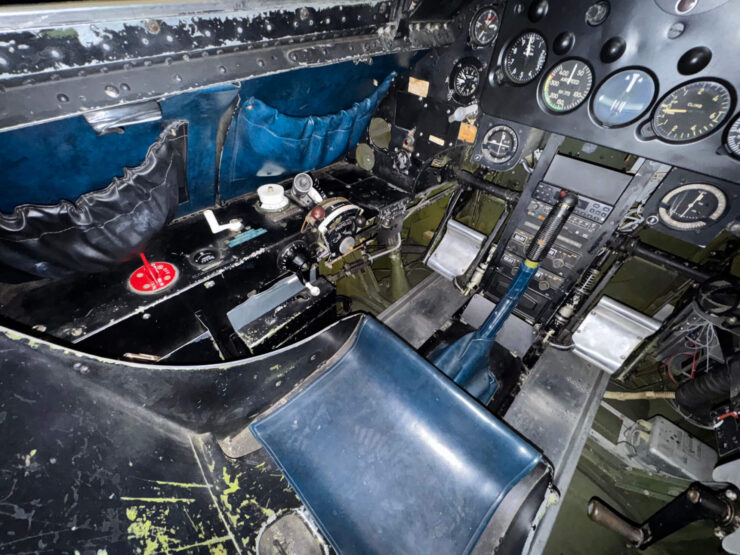
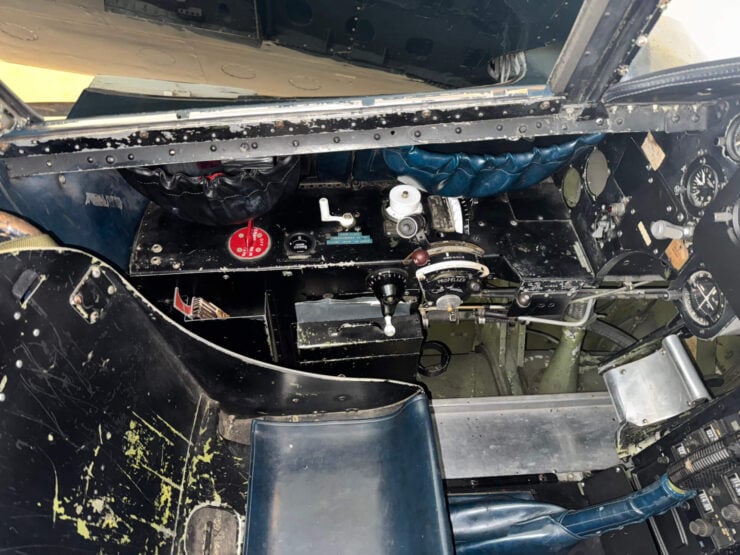
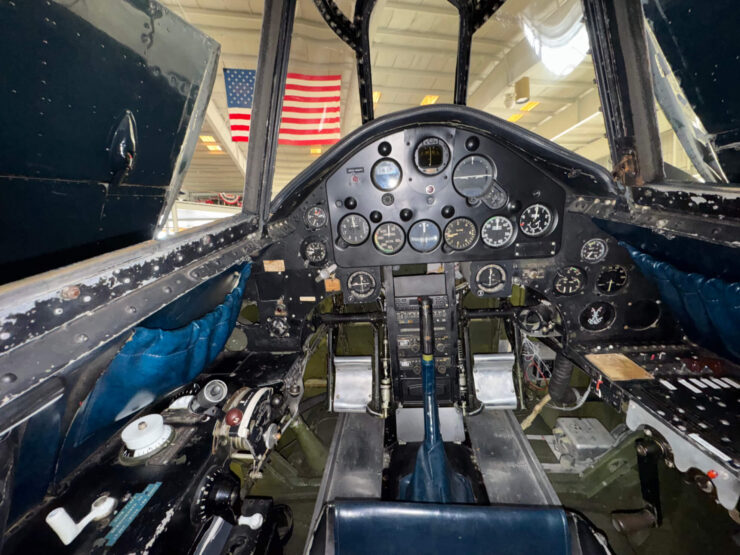
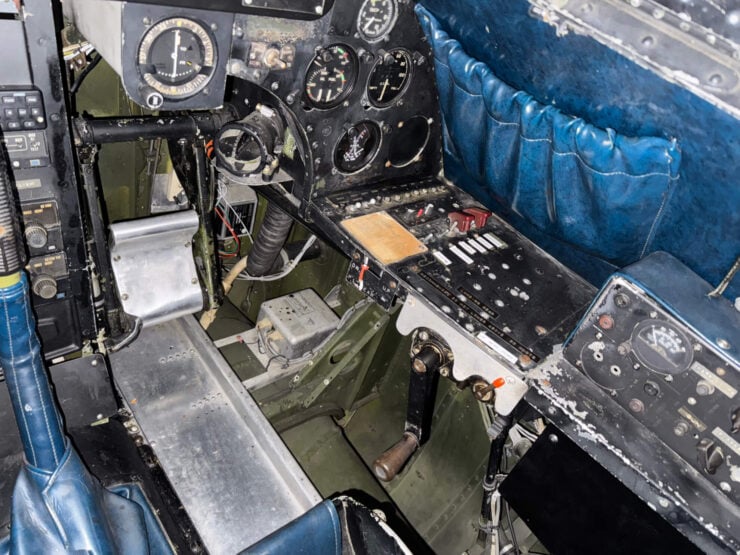
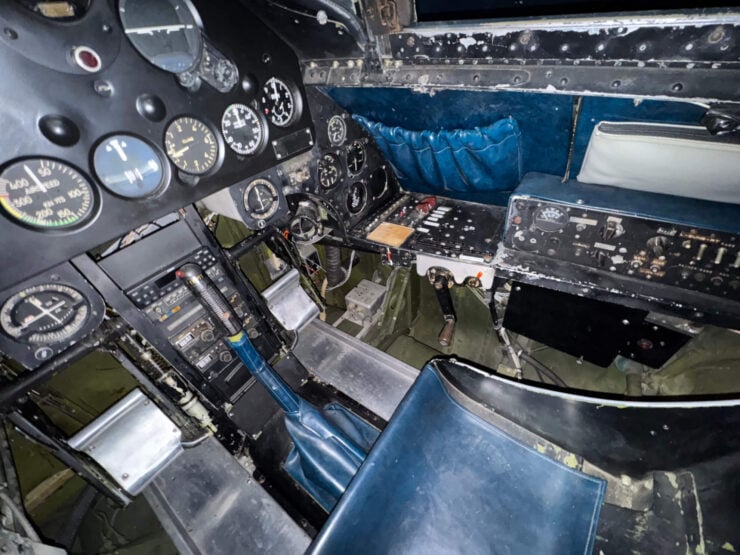
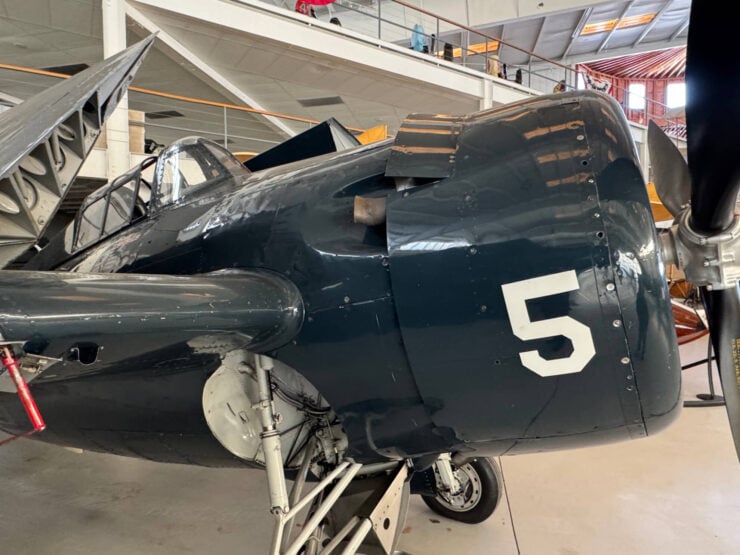
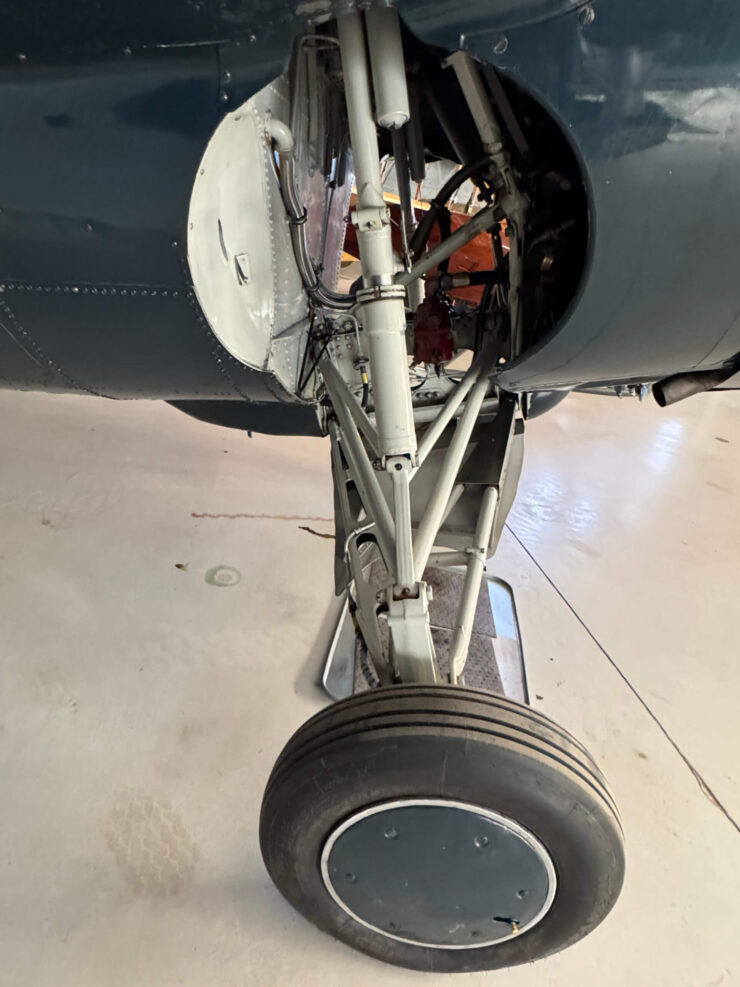
Images courtesy of Platinum Fighter Sales

